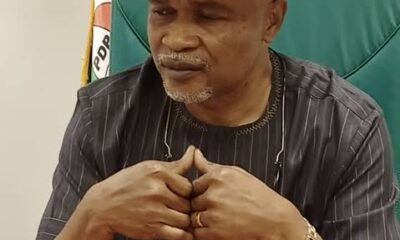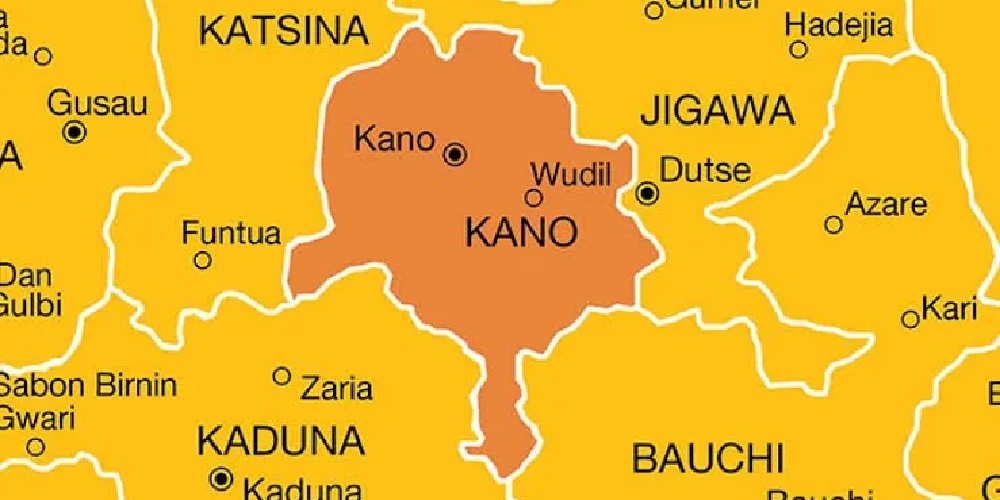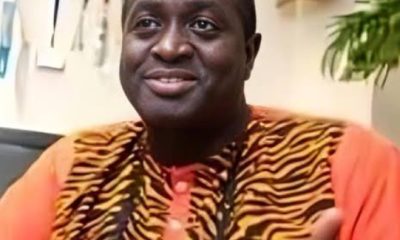Foreign
February on course to break unprecedented number of heat records

February is on course to break a record number of heat records, meteorologists say, as human-made global heating and the natural El Niño climate pattern drive up temperatures on land and oceans around the world.
A little over halfway into the shortest month of the year, the heating spike has become so pronounced that climate charts are entering new territory, particularly for sea-surface temperatures that have persisted and accelerated to the point where expert observers are struggling to explain how the change is happening.
“The planet is warming at an accelerating rate. We are seeing rapid temperature increases in the ocean, the climate’s largest reservoir of heat,” said Dr Joel Hirschi, the associate head of marine systems modelling at the UK National Oceanography Centre. “The amplitude by which previous sea surface temperatures records were beaten in 2023 and now 2024 exceed expectations, though understanding why this is, is the subject of ongoing research.”
Humanity is on a trajectory to experience the hottest February in recorded history, after a record January, December, November, October, September, August, July, June and May, according to the Berkeley Earth scientist Zeke Hausfather.
He said the rise in recent weeks was on course for 2C of warming above pre-industrial levels, though this should be the brief, peak impact of El Niño if it follows the path of previous years and starts to cool down in the months ahead.
That would normally be good news if a temperature-lowering La Niña follows, but Hausfather said the behaviour of the climate had become more erratic and harder to forecast. “[Last year] defied expectations so much that it’s hard to have as much confidence in the approaches we have used to make these predictions in the past,” he said.
“I’d say February 2024 is an odds-on favourite to beat the prior record set in 2016, but it’s by no means a foregone conclusion at this point as weather models suggest that global temperatures will fall back down in the coming week.
So while I think these extreme temperatures provide some evidence of an acceleration in the rate of warming in recent years – as climate models expect there to be if CO2 emissions do not fall but aerosols do – it’s not necessarily worse than we thought.”
Foreign
Journalists rally against White House’s decision to modify allocation of seats in briefing room

The White House said Monday it is “seriously considering” taking control of deciding which journalists get seats in the famed briefing room, in the latest bid by President Donald Trump’s administration to exert power over the media.
The 49 spots in the press room, where spokespeople, officials and occasionally the president take the podium, have long been allocated by the non-partisan group of independent journalists, the White House Correspondents Association.
White House Press Secretary Karoline Leavitt accused the WHCA of trying to maintain a “monetized monopoly over the briefing room.”
“As for switching up seating in the briefing room, it’s something we are seriously considering,” she told Fox News.
“The briefing room is part of the People’s House, it belongs to the American people. It does not belong to elitist journalists here in Washington DC.”
News outlet Axios reported earlier that the White House wanted to take control of the seating chart to give more prime front-of-room spots to new media, and move some legacy outlets further back.
The WHCA, of which AFP is a member, opposed the “wrong-headed” move.
“The reason the White House wants control of the briefing room is the same reason they took control of the pool: to exert pressure on journalists over coverage they disagree with,” WHCA President Eugene Daniels said in a statement.
The WHCA and the White House both said they had tried to broker a meeting on the issue.
It is the latest effort by the White House to shape who covers Trump after taking control from the WHCA in February of the “pool” that covers the president in the Oval Office and when he travels on Air Force One.
The White House has added access to the pool for new and in several cases openly pro-Trump media, while reducing access to mainstream organisations.
It also continues to bar the Associated Press news agency from almost all presidential events as it refuses to refer to the Gulf of Mexico as the “Gulf of America,” the name newly decreed by Trump.
AFP
Foreign
Ghana: Govt cancels sale of diplomatic properties in Nigeria, Zambia

The Ghanaian government has canceled two transactions initiated by the previous administration under the leadership of former president Nana Akufo-Addo to sell Ghanaian diplomatic properties in Nigeria and Zambia.
“Yesterday I informed Parliament that with the full backing of President Mahama, we have cancelled two transactions initiated by the previous Akufo-Addo/Bawumia government to sell Ghanaian diplomatic properties in Nigeria and Zambia.” Minister of Foreign Affairs, Hon. Samuel Okudzeto Ablakwa announced on his X.
According to the Member of Parliament for North Tongu, the current administration is determined to retrieve an illegal part payment in one of the transactions.
Adding that those who are involved in these illegal transactions will be sanctioned.
“Determined efforts are underway to retrieve an illegal part payment in one of the transactions. The masterminds, who are currently on the run will surely be found and sanctioned.” He added.
He said the NDC government is committed to their promise that no diplomatic property belonging to the people of Ghana would be sold under President John Dramani Mahama administration.
Hon. Ablakwa warned that none of our diplomatic properties either in Ghana or any of our 71 diplomatic missions abroad are available for sale.
“We mean it when we say no diplomatic property belonging to the people of Ghana would be sold under our watch. Notice is hereby served that none of our diplomatic properties either in Ghana or any of our 71 diplomatic missions abroad are available for sale — hands off!” He stated.
According to him, they will use the principles of Operation Recover All Loots (ORAL) to protect properties belonging to the state as well as the public purse.
“The principles of ORAL, strict abhorrence for State Capture and the national interest shall continue to guide our decisions. For God and Country.” Ablakwa assured.
Source: Elvisanokyenews.net
Foreign
Namibia to enforce visa requirement on U.S citizens

Namibia has imposed visa requirements on U.S. citizen tourists starting from April 1, 2025.
According to the Namibian Government, U.S. citizen tourists who wish to visit the Southern African country should obtain a visa before entering the country.
The U.S Embassy in Namibia posted that US visitors are required to apply for a visa through Namibia’s online visa on arrival portal: https://eservices.mhaiss.gov.na/visaonarrival.
“Beginning April 1, 2025, the Namibian Government will require U.S. citizen tourists to obtain a visa prior to entering the country. Visitors are recommended to apply for their visa in advance of planned travel through Namibia’s online visa on arrival portal: https://eservices.mhaiss.gov.na/visaonarrival. Visitors using this online visa application system must carry a hard copy of their approval notice when they travel.” The Embassy posted.
The Namibian Government added that visitors arriving in Windhoek, Walvis Bay, Katima Mulilo, Ngoma will also have the option of purchasing a tourist visa upon arrival at the respective airport or border crossing point.
“Visitors arriving in Windhoek, Walvis Bay, or entering at high volume border crossing points (e.g., Katima Mulilo, Ngoma) will also have the option of purchasing a tourist visa upon arrival at the respective airport or border crossing point. Namibia’s visa on arrival system is new and implementation details are subject to change.” They added.
The decision by the Namibian government to impose visa requirements on US citizens has met mixed reactions on social media.
While others are commending the government, others have also raised concerns about the negative impact on the Namibia economy as tourism contributes higher income to the government.
Some political actors believe Namibian female President, H.E. Dr. Netumbo Nandi-Ndaitwah took the decision to reciprocate the US government visa restrictions and some Western countries who have denied visa free entry to Namibians.
Source: Elvisanokyenews.net
-

 News8 hours ago
News8 hours agoBREAKING! Finally, Senate lifts suspension on Natasha
-

 News22 hours ago
News22 hours agoFormer HoR member, TeeJay Yusuf calls on IGP, Kogi govt, other agencies to curb rising insecurity in Okun-Yoruba
-

 News20 hours ago
News20 hours agoSad! Popular actor, Richard Chamberlain is dead
-

 News17 hours ago
News17 hours agoReps Minority Caucus Condemns Killings in Edo State
-

 News23 hours ago
News23 hours agoEdo Killings: Kano Govt Sends Fact-Finding Delegation, Demands Justice
-

 News20 hours ago
News20 hours agoMali, Niger, Burkina Faso Impose 0.5% Levy On Goods From ECOWAS Nations
-

 News23 hours ago
News23 hours agoJust in: Popular Osun Monarch Joins Ancestors
-

 News23 hours ago
News23 hours agoMeet Dr. Abdul Karim Bangura: Africa’s Most Educated Man






